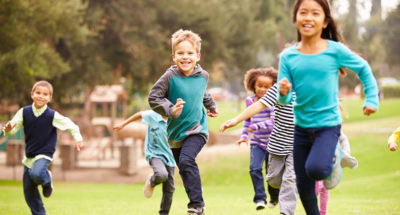
Magic Tag
Two or three “magicians” tag players who then become frozen “magic wands.” Those who have not been tagged encircle the magic wands, freeing them by calling out “Abracadabra!”

Two or three “magicians” tag players who then become frozen “magic wands.” Those who have not been tagged encircle the magic wands, freeing them by calling out “Abracadabra!”
Students will:
Think of the last time you played a fun game with friends or family. How did it make you feel? Did it strengthen the connection between everyone?
Playworks’ new SEL Game Guide contains more than 150 games that you can use to reinforce social and emotional skills. Inside, you will find brain breaks, recess favorites, variations on classic games, and facilitation tips that make playtime fun, safe, and inclusive for all kids. Visit www.playworks.org to learn more about Playworks and how play can help kids stay active and learn valuable life skills.
Are students playing more cooperatively with each other after playing Magic Tag?
A longitudinal study of 77 first graders in two diverse urban American schools found that playing games at recess predicted greater social competence, including being liked by peers and reciprocal friendship, at the end of the school year as compared to the beginning, especially for boys. This finding supports decades of research that links games and play to children’s social development.
Positive peer relationships are key to long-term student well-being and academic success. Students who tend to be accepted rather than rejected by their peers exhibit strong social skills, such as cooperating, negotiating, communicating, and compromising. Playing games that require students to demonstrate kindness and cooperation helps students to both practice these skills and to foster stronger bonds with their fellow players.

Are you ready to build a kinder, happier school where everyone belongs? Join Greater Good Educators! Explore the science of well-being in a supportive community of educators from around the world. Registration is now open for the 2025-2026 school year!
Comments